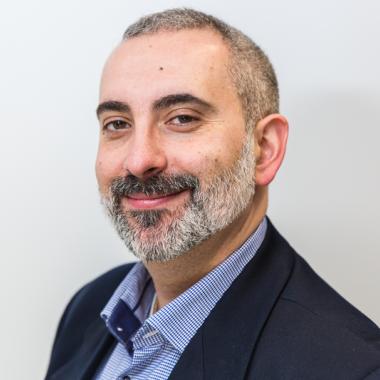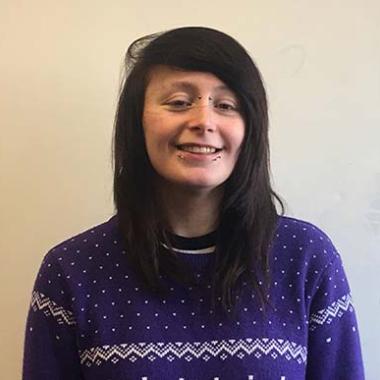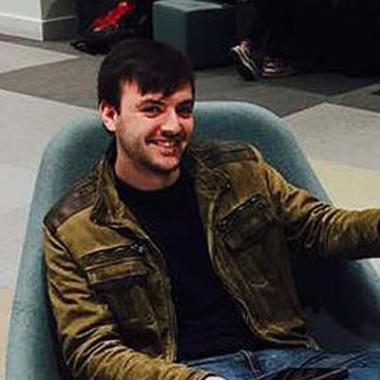Course Overview
Course summary
Our Computer Games Development course combines technology and creativity in a multidisciplinary way.
The games industry is an expanding and challenging sector with continually evolving ideas and cutting-edge technologies. It requires practitioners to exercise more flexibility in software specifications and functionality, through adapting their approaches to design and management while keeping abreast of broad changes to technology.
This course covers all major technical aspects of the games development process, from design to production. It aims to prepare you for a career in software development with a particular emphasis on computer games. The course provides you with a solid understanding of game technologies, including programming, applied maths, computer graphics and game engines. You'll develop a broad range of knowledge and skills including mobile and web application development, 3D modelling and animation, and human-computer interaction. To enhance student employability, the course offers a number of talks from the creative industry and will support your participation in prestige game competitions and digital fairs, as well as industrial placements and internships.
The primary language you'll learn is C++, but you'll also have the opportunity to engage with other languages and software, such as C#, Python (Machine Learning, Algorithms), JavaScript and Swift. For character development we use Adobe Maya, Photoshop, 3DS Max and 3D Coat. The course focuses on using Unreal Engine 4 and Blueprints technology, but students will have the opportunity to engage with any of the commercial engines across the course.
The course will prepare you for work in an increasingly challenging and rewarding field by giving you a clear perspective on the current nature and practice of games development. You'll be equipped with the required technical and creative skills for the new era of game developers. You'll gain a thorough knowledge of programming, computer graphics and game project management, together with an appreciation of the industrial environment. The course also includes opportunities to work on group productions, including multidisciplinary game projects that simulate a real game industry environment.
The course offers a short-term, work-based learning experience that will give you the opportunity to work on a real-life problem, which is normally set by an external organisation as a small-scale project. This experience will allow you to put theory into practice by applying knowledge and skills gained from various modules to address a real-life situation, usually within the context of a business-related problem.
In previous years, there have been opportunities to travel and to engage with students from other universities across Europe. Trips have included Distant Horizons in Seville, Spain, as well as our annual Wmin-Graz Hackthon.
In addition, you'll have the opportunity to undertake a year in industry (work placement) after completing Year 2. This will help you gain work experience and enhance your employability after you graduate. You'll be offered help and support to find and secure placement opportunities through various workshops and events organised by the Careers and Employability Service and the course team. Typically, you'll be assigned into roles involving tasks related to various aspects of computer games development.
Top reasons to study with us
- Valuable industry insights – our strong links to the sector ensure the course is taught with the games development industry in mind. Our teaching staff includes academics with experience in the games industry, alongside industry advisors who support the course on all work-based learning projects and competitions
- Work experience before graduation – as part of the course, you'll have the option to work for a year in the industry, gaining valuable work experience and boosting your employability
- Successful alumni – our alumni have found positions in companies including Microsoft, Sega, and Marmalade
- Outstanding facilities – you'll benefit from a brand-new XRLab facility, our upgraded Motion Capture lab, and our Games Development Project Lab
- Extra-curricula activities – students can take part in industrial networking opportunities (EGX, PocketGamer, Aardvark Swift Game Careers Talks) and Game Jams to improve students' portfolios and experience (Global Game Jam, Tranzfuser, UKIE)
- Discover our student projects – our dynamic, collaborative environment is displayed in our students' work
- You'll qualify for free British Computer Society (BCS) academic membership for the duration of your studies. The BCS supports those working in the IT industry and has a commitment to making IT good for society. The organisation has over 60,000 members in 150 countries, and a wider community of business leaders, educators, practitioners and policy-makers. Membership of the BCS will allow you to continue your professional development and enjoy a range of valuable networking opportunities. For more information, visit the BCS website
Course structure
As part of the main computer science stream, our games development course aims to produce graduates with a solid background in software engineering, to help shape the future of the computer science creative industry. The course content is contemporary and shaped for employability through close links with local and national employers.
You'll spend around 12-15 hours per week in lectures, tutorials and laboratories. Lectures are used to present key concepts, theories and techniques. Tutorials and laboratory-based activities increase your understanding of the subject and allow you to develop your competence and confidence in technological and theoretical work.
During the course, you'll be required to actively participate in group work, discussions, seminars, and private study.
Due to the practical nature of this course, assessment is extremely varied and includes academic and evaluative reports, case studies, oral presentations, practical projects, in-class tests and work portfolios.
The following subjects are indicative of what you'll study on this course.
Subjects of study include:
- Applied Mathematics
- Game Enterprise
- Introduction to Game Design
- Introduction to Games Development
- Programming Methodology
Credit Level 4
Subjects of study include:
- Game Programming Patterns
- Game Studio (Work-Based Learning)
- Games Engine Architecture
- Maths & Physics for Games
- 3D Interactive Media Development
- XR Multimodal Interaction
- Mobile Gaming Concepts
- Algorithms: Theory design and implementation
- Machine Learning and Data mining
Credit Level 5
This course gives you the opportunity to take a year in industry (work placement) after completing the second year of your study. You can choose between professional experience or international experience.
The professional experience (work placement) year is planned in partnership with the Westminster Work Based Learning team. Typically, you will be assigned into roles involving tasks related to computer games development.
The international experience (study abroad) year offers one or two semesters studying at one of our overseas partner Universities. This is both an exciting experience and also one that helps you to develop a global outlook.
Find out more about the costs involved in taking a placement year.
Subjects of study include:
- Computer Games Development Final Project
- Computer Graphics Programming
- Game AI
- Games Networking and Security
- Advanced Interactive Media Development
- Introduction to Shaders and VFX
Credit Level 6
Professional accreditation
Our course is intended to fulfil the requirements of the British Computer Society (BCS), which means it complies with rigorous academic and professional standards as set out by the BCS. It also allows graduates to gain registration as a Chartered IT Professional (CITP) and partial registration as a Chartered Engineer (CEng).
Studying Computer Games Development at Westminster
For more details on course structure, modules, teaching and assessment Download the programme specification (PDF).
To request an accessible version please email [email protected]
Get your copy of the University of Westminster prospectus and browse the range of courses on offer.
Contact us for general course enquiries:
+44 (0)20 7911 5000 EXT 65511
(Mon–Fri, 10am–4pm BST)
Live chat with us
(Mon–Fri, 10am–4pm BST)
Open days
Join us at an open day online or on campus. Get a feel for student life at the University of Westminster and talk to course leaders and our support teams.
Can't attend? See more open events
More ways to meet us
Careers
Successful alumni
Our graduates have found positions as game developers, designers and testers in companies including Microsoft, Sega, King, SiniSoft, Arekkz Gaming, Bossa Studios and Marmalade.
Industry engagement
Industry speakers and guest lecturers give students insight into working in the industry, provide mentorship as part of their group project work and offer specialised feedback on their portfolios and CVs.
Career-led learning
We work with leading game developers, which in the past have included King, Imaginarti, Marmalade and Bossa Studio, to ensure our graduates are highly employable within the industry.
Career development
On graduating, you will have a maths/games-orientated programming degree, which is highly sought after by the computer games industry.
The course was created in response to the acute shortage of game programmers and designers within the industry and is designed to meet the industry requirements outlined by industrial panels such as TIGA and Skillset.
There are frequent opportunities for students to gain work experience on the course, which in the past have included games testing opportunities at local studios, such as Bossa and King, summer internships at companies, such as Natural Motion, and placements in a range of software engineering and mobile companies that include:
- Bossa Studio
- Microsoft
- Natural Motion
- Sega
- Sumo Digital
Industry links
Industry engagement is an essential part of the course. You'll hear from industry speakers and receive mentorship from industry professionals as part of their group project work.
The University works closely with leading game developers such as King, Imaginarti, Marmalade and Bossa Studios, Target 3D, Natural Motion, and Genera. There are also frequent networking opportunities (recent initiatives have included Barclays Game Frenzy, Gaming Industry Insights Trip to Vienna, EGX, PocketGamer, Aardvark Swift Game careers talks) and Game Jams to improve students' portfolios and experience (recent initiatives have included Imperial War Museum Game Jam, Global Game Jam, Tranzfuser, UKIE).
As part of the course, students regularly engage with industry partners for specialised feedback on their portfolios and CVs. Our annual visit from the talent hunter team at Aardvark Swift has always been well attended.
Job roles
The course prepares you for roles in a range of sectors including:
- Game developer, designer and tester
- Mobile app developer
- Multimodal Interactive Applications (VR, AR, XR)
- QA consultant
- Software developer (including artificial intelligence gaming, mobile, algorithms etc.)
Graduate employers
Graduates have found employment as games, graphics and network programmers in a wide variety of areas, ranging from creating console games for Microsoft Xbox, to programming the latest mobile devices.
While pursuing their studies, some students have taken advantage of the University’s enterprise initiatives to find their own start-up companies – Arrekz Gamin, True Ronin Games. Other graduates have gained positions with these big names:
- 5th Business
- Amtech
- Arekkz Gaming
- Beyond the Story
- Bossa Studios
- CGI
- GEEKS – Game Testing
- King
- Marmalade
- Microsoft
- Natural Motion
- NETbuilder
- Neybar
- Portable Pixels
- Royal Bank of Scotland
- Sega
- SiNi Software
- Slitherine Software UK Ltd
- Sumo Digital
- Target 3D
- TT Games
- Two-Way Media
- VMC – Game Testing
- We R interactive
Meet our alumni
International Opportunities
Many of our courses offer international study and work experiences, and the University provides other global opportunities that all students can apply for – so whatever you're studying, you'll have the chance to go abroad.
Opportunities could include:
- Taking part in semester or year-long exchanges at institutions around the world
- Attending an international summer school or field trip
- Developing your CV through volunteering or work placements abroad
International experience broadens horizons, boosts self-confidence, and improves global understanding, alongside being fantastic for your career.
Find out more about our international opportunities, including funding options and where you can go.
Course Leader

Markos Mentzelopoulos
Senior Lecturer - Course Leader for the BSc Computer Games Development
Markos Mentzelopoulos received his BEng in Electronics Systems Engineering (2000) and MSc in Broadband and Mobile Communication Networks degree (2002) from the University of Kent at Canterbury.
He has been a Senior Lecturer in the Computer Science Department since August 2002.
His research interests include content-based sports video analysis and retrieval, semantic event detection, statistical methods and pattern recognition techniques for classification and modelling, tracking and recognition, man-machine interfaces, and serious games design.
Markos has published articles in conferences and journals and served as a program committee member in several international conferences within the multimedia and neural network scientific community such as IJCNN, ACM, ACVR etc. He has also industrial experience as Program Analyst and Developer with Glaxo Smith Kline (G.S.K -2006).
Games have so much freedom. You can go anywhere you want!
Course Team
Why study this course?
Gain industry experience
You'll have the option to take part in a year in industry, helping you gain work experience and increasing your employability after you graduate.
Teaching
93% of students on our Computer Games Development BSc agreed that staff are good at explaining things.
Source: Discover Uni – site accessed in November 2020.
Extra-curricula activities
Students are encouraged to take part in national and international game jams, including the University of Westminster's own Games Jam, to improve their portfolios and experience (Global Game Jam, Tranzfuser, UKIE).
Industry-standard software
Our facilities include cutting-edge, industry-standard software, game engines (Unreal Engine 4, Unity and MonoGame) and console development kits to enhance your learning experience.
You'll benefit from dedicated games project labs with the latest technology, allowing you to deploy your games in industry-standard platforms like PS4, STEAM and Xbox, as well as deploying mobile games for Android and iOS.
Additional facilities include specialised motion capture equipment to develop your own character animation, and specialised, cutting-edge, immersive hardware like hololens, VR (Oculus, HTC), Mobile VR (Samsung GearR and OSVR), kinect, Leap Motion and PrioVR.
Watch our annual Demo Motion Capture day from our experts Jeff Ferguson and Alex Diplock.
3DS Max version of the games project lab
Facilities
Our fantastic, state-of-the-art facilities include new and upgraded labs.
Our brand new XRLab Facility includes the latest VR/XR technologies, Hololens, exoskeletons and more. Our upgraded Motion Capture lab allows students to develop their own Avatar motion and render it with texture software, which you can check out in our latest Motion Capture Demo day. Our dedicated Games Development Project Lab is exclusively for our game students and gives them the perfect place to work on their projects.
Our Windows-based and Mac labs include Windows 10, Unix, Linux and Mac OSX operating systems, and programming software, free to all students, including MS Office 365, Google Account with GoogleDrive, Adobe Autodesk, Visual Studio, UE4, Unity, MonoGame, Maya, 3DSMax, 3D Coat, Maximo and Motion capture programs for texture.
Entry Requirements
- A Levels – CCC (96 UCAS Tariff points)
- T levels – 96 UCAS Tariff points
- International Baccalaureate – 96 UCAS Tariff points from all components of the Diploma Programme. International Baccalaureate Career-related Programme will be considered on a case-by case basis
- BTEC Extended Diploma – MMM
- BTEC Diploma – DD
- Access – 96 UCAS Tariff points from the Access course
In addition to one of the above, you should have:
- GCSE English Language grade 4/C – IB grade 4 Higher level, GCSE Maths grade 4/C – IB grade 4
If your first language is not English, you will need an IELTS of 6.0 overall, with 5.5 in each component.
We also welcome applications from students who are taking a combination of qualifications listed above. For further information, please contact Course Enquiries.
View more information about our entry requirements and the application process
- International Baccalaureate – 96 UCAS Tariff points from all components of the Diploma Programme. International Baccalaureate Career-related Programme will be considered on a case-by-case basis. You can refer to the UCAS calculator to determine your point score
- We accept a wide range of international high school level qualifications. Please see information on Country-specific entry requirements
- We work in partnership with Kaplan International College London who provide International Foundation Certificate courses for students who don’t meet our entry requirements. Upon successful completion, you can progress to your chosen degree at the University of Westminster. Find out about a range of university preparation courses that are accepted for entry.
English language requirements
- If your first language is not English, you should have an IELTS score of 6.0 overall, with a score of 5.5 in each component. Please note we accept a wide range of English language qualifications and assessments. Find out more at English language requirements.
- If you don't meet the English language requirements yet, then we offer online and on campus pre-sessional English programmes to help develop your English language skills to the required level before you start your course. Find out more about our pre-sessional English programmes.
More information
- A Levels – CCC (96 UCAS Tariff points)
- T levels – 96 UCAS Tariff points
- International Baccalaureate – 96 UCAS Tariff points from all components of the Diploma Programme. International Baccalaureate Career-related Programme will be considered on a case-by case basis
- BTEC Extended Diploma – MMM
- BTEC Diploma – DD
- Access – 96 UCAS Tariff points from the Access course
In addition to one of the above, you should have:
- GCSE English Language grade 4/C – IB grade 4 Higher level, GCSE Maths grade 4/C – IB grade 4
If your first language is not English, you will need an IELTS of 6.0 overall, with 5.5 in each component.
We also welcome applications from students who are taking a combination of qualifications listed above. For further information, please contact Course Enquiries.
View more information about our entry requirements and the application process
- International Baccalaureate – 96 UCAS Tariff points from all components of the Diploma Programme. International Baccalaureate Career-related Programme will be considered on a case-by-case basis. You can refer to the UCAS calculator to determine your point score
- We accept a wide range of international high school level qualifications. Please see information on Country-specific entry requirements
- We work in partnership with Kaplan International College London who provide International Foundation Certificate courses for students who don’t meet our entry requirements. Upon successful completion, you can progress to your chosen degree at the University of Westminster. Find out about a range of university preparation courses that are accepted for entry.
English language requirements
- If your first language is not English, you should have an IELTS score of 6.0 overall, with a score of 5.5 in each component. Please note we accept a wide range of English language qualifications and assessments. Find out more at English language requirements.
- If you don't meet the English language requirements yet, then we offer online and on campus pre-sessional English programmes to help develop your English language skills to the required level before you start your course. Find out more about our pre-sessional English programmes.
More information
Studying Computer Science and Engineering at Westminster
Watch the video below to find out more about studying Computer Science and Engineering at Westminster.
What our students say

Tamas Aczima
Computer Games Development BSc Honours
BOSSA Studios Placement
The University provided me with all the necessary skills that helped me get my first job in the game industry. During my internship I've had the opportunity to work on different projects, which included fixing bugs in already released games, working on a prototype that will be developed into a full game and working on the studio's main project.
It's been an amazing experience to gain insight into game development and I'm going to start my final year with more confidence.
(Final Year Student)
BOSSA Studios Placement

Jacquelina Watson
Computer Games Development BSc Honours
I have found the University of Westminster to be an inspiring environment. The tutors all have extensive experience in games and that is very stimulating and shines through in my current workflow. The course has given me the opportunity to attend many workshops and conventions that have been useful from networking but also have encouraged me to be more creative and forward thinking in general. Overall I have enjoyed my time here and look forward to what my future at the university holds.
(2nd Year Student)
President of the Games & Creative Society

Jeremy Ratcliffe
Computer Games Development BSc Honours - 2017
Unity Mobile Developer | NumberFit
The degree helped to gain experience in several disciplines and technologies related to game development, such as programming, animation, augmented and virtual reality. The best experience I had was during my final year where I had the opportunity to work alongside a company for an AR game using Unity. I have recently graduated and I am currently hired by the same company and in the process of turning that project into a full marketed product.
(Graduated in 2017)
Unity Mobile Developer at NumberFit
What our students say

Agata Berent
Computer Games Development BSc - 2025
The curriculum covers various game engines and coding languages crucial for future game programmers. It also covers essential aspects like mathematics and physics, game enterprise, and 3D asset creation. What has particularly stood out for me during this course is the opportunity to collaborate with actual game programmers right from the beginning.

Scott Anderson
Computer Games Development BSc Honours
Mobile Game Developer | AppBoxMedia
The variety of modules helped with learning about the many parts of game development gaining useful knowledge and teamwork skills readying us for work in the games industry. The thing which most helped me secure a job was the many game jams the students and I took part in. Winning a game jam resulted in myself and other students securing full time jobs.
(Graduated in 2017)
Mobile Game Developer at AppBoxMedia

Benjamin Foote
Computer Games Development BSc Honours - 2017
Software Developer at SiNi Software
The course stood out to me as it encompassed a wide variety of technical and creative modules. My lecturers were excellent at encouraging myself and classmates to also participate in projects outside of our course to build our portfolios and industry connections. With the help of the university I was hired for my first job within just a couple weeks of graduating and now help to develop tools for 3D artists and architects, a job I find extremely fun and rewarding.
(Graduated in 2017)
Software Developer at SiNi Software
Student work
Learn new skills
Learn a new language
From Arabic to Spanish, you can learn a new language alongside your degree with our Polylang programme.
Develop your entrepreneurial skills
Our award-winning Westminster Enterprise Network offers industry networking events, workshops, one-to-one business advice and support for your startup projects.
Gain extra qualifications
We provide access to free online courses in Adobe and Microsoft Office applications, as well as thousands of specialist courses on LinkedIn Learning.
Fees and Funding
UK tuition fee: £9,535 (Price per academic year)
Please note that if you defer your place, the first year’s tuition fees will be those of the academic year in which you enrol, which may be higher than the fee shown for this year.
Fees are subject to UK Government Parliamentary procedure.
Find out how we set our tuition fees.
Funding
As well as tuition fee loans, there is a range of funding available to help you fund your studies.
Find out about undergraduate student funding options.
Scholarships
The University is dedicated to supporting ambitious and outstanding students and we offer a variety of scholarships to eligible undergraduate students, which cover all or part of your tuition fees.
Find out if you qualify for one of our scholarships.
International tuition fee: £17,000 (Price per academic year)
When you have enrolled with us, your annual tuition fees will remain the same throughout your studies with us. We do not increase International tuition fees.
Please note that if you defer your place, the first year’s tuition fees will be those of the academic year in which you enrol, which may be higher than the fee shown for this year.
Find out how we set our tuition fees.
EU Qualifications Welcome Award Scheme
If you are an international student accepted on an undergraduate programme starting in September 2024 or September 2025 at level 3 (Foundation) or level 4 (first year) on the basis of an eligible EU qualification only, you will be awarded a tuition fee reduction which will align your fee more closely to the one for UK students. For more information, see the EU Qualifications Welcome Award Scheme.
International student funding
Find out about funding for international students.
Additional costs
See what you may need to pay for separately and what your tuition fees cover.
UK tuition fee: £9,535 (Price per academic year)
Please note that if you defer your place, the first year’s tuition fees will be those of the academic year in which you enrol, which may be higher than the fee shown for this year.
Fees are subject to UK Government Parliamentary procedure.
Find out how we set our tuition fees.
Funding
As well as tuition fee loans, there is a range of funding available to help you fund your studies.
Find out about undergraduate student funding options.
Scholarships
The University is dedicated to supporting ambitious and outstanding students and we offer a variety of scholarships to eligible undergraduate students, which cover all or part of your tuition fees.
Find out if you qualify for one of our scholarships.
International tuition fee: £17,000 (Price per academic year)
When you have enrolled with us, your annual tuition fees will remain the same throughout your studies with us. We do not increase International tuition fees.
Please note that if you defer your place, the first year’s tuition fees will be those of the academic year in which you enrol, which may be higher than the fee shown for this year.
Find out how we set our tuition fees.
EU Qualifications Welcome Award Scheme
If you are an international student accepted on an undergraduate programme starting in September 2024 or September 2025 at level 3 (Foundation) or level 4 (first year) on the basis of an eligible EU qualification only, you will be awarded a tuition fee reduction which will align your fee more closely to the one for UK students. For more information, see the EU Qualifications Welcome Award Scheme.
International student funding
Find out about funding for international students.
Additional costs
See what you may need to pay for separately and what your tuition fees cover.
Teaching and Assessment
Below you will find how learning time and assessment types are distributed on this course. The graphs below give an indication of what you can expect through approximate percentages, taken either from the experience of previous cohorts, or based on the standard module diet where historic course data is unavailable. Changes to the division of learning time and assessment may be made in response to feedback and in accordance with our terms and conditions.
How you'll be taught
Teaching methods across all our undergraduate courses focus on active student learning through lectures, seminars, workshops, problem-based and blended learning, and where appropriate practical application. Learning typically falls into three broad categories:
- Scheduled hours: examples include lectures, seminars, practical classes, workshops, supervised time in a studio
- Placement: placement hours normally include placement opportunities, but may also include live projects or virtual activity involving employers
- Independent study: non-scheduled time in which students are expected to study independently. This may include preparation for scheduled sessions, follow-up work, wider reading or practice, completion of assessment tasks, or revision
How you'll be assessed
Our undergraduate courses include a wide variety of assessments.
Assessments typically fall into three broad categories:
- Practical: examples include presentations, videos, podcasts, lab work, creating artefacts
- Written exams: end of semester exams
- Coursework: examples include essays, reports, in-class tests, portfolios, dissertation
Data from the academic year 2024/25
Supporting you
Our Student Hub is where you’ll find out about the services and support we offer, helping you get the best out of your time with us.
- Study support – workshops, 1-2-1 support and online resources to help improve your academic and research skills
- Personal tutors – support you in fulfilling your academic and personal potential
- Student advice team – provide specialist advice on a range of issues including funding, benefits and visas
- Extra-curricular activities – volunteering opportunities, sports and fitness activities, student events and more
Course Location
With state-of-the-art science and psychology labs and refurbished computer suites, our Cavendish Campus offers our science and technology students a range of learning spaces that are both dynamic and inspiring.
Located in central London, our Cavendish Campus is just a five-minute walk from Oxford Street and Tottenham Court Road.
For more details, visit our Cavendish Campus page.
Contact us
Call our dedicated team on:
+44 (0)20 7911 5000 ext 65511
Opening hours (GMT): 10am–4pm Monday to Friday
Opening hours (GMT): 10am–4pm Monday to Friday
More information
Your Westminster
Book an open day. Order a prospectus. Sign up for newsletters.











